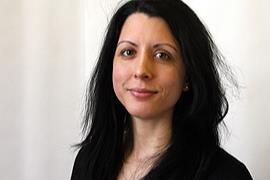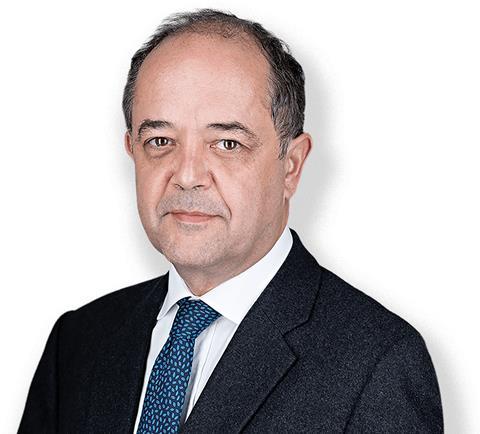The chair of the bar has branded the anomaly of conferring the title ‘barrister’ before the qualification process is complete as ‘the single biggest systemic risk to our profession’. Speaking at Inner Temple last week on what the bar will look like in 20 years’ time, Nick Vineall KC said the issue ‘is about as fundamental as any question could be’ and has ‘crept up on us stealthily’.

Currently, it is the act of being called to the bar by one of the four ancient Inns of Court that entitles an individual to use the title of barrister. Somewhat bizarrely, as Vineall explained, to become a barrister all you have to do is get a qualifying law degree with a 2.2 or better (or do the law conversion course), complete the qualifying sessions with your Inn of Court, and pass the vocational course offered by one of the 10 providers.
It follows that the title of barrister is conferred for life on thousands of people who have not done the 12-month pupillage, have no rights of audience in court and who are not entitled to practise as barristers – rendering it somewhat meaningless.
In stark contrast, solicitors cannot use their professional title until their qualification is complete – and until they have, for example, under the traditional route, gained a qualifying law degree, completed the Legal Practice Course and done a two-year training contract.
As a result of the bar’s present arrangements, Vineall pointed out that there are far more non-practising barristers than practising.

‘For every barrister with a practising certificate, there are two who have never been entitled to a practising certificate,’ he said. ‘Of all the people in the world who are entitled to tell you they are a barrister called to the Bar of England and Wales, only one in four has a practising certificate.’
Ignoring the large numbers of overseas students, who intend to return home to qualify in their own jurisdiction, Vineall lamented that ‘far more British Isles-domiciled students’ are called to the bar each year than will ever get pupillage.
The chances of eventually getting pupillage for British and Irish students, he said, are somewhere between half and two-thirds. The result is that the bar as a whole is getting bigger and bigger, while the practising bar stays roughly constant.
The situation has arisen because, historically, there were fewer bar students, of whom the vast majority went on to get pupillage. In addition, the Legal Services Act does not specify when the Inns of Court must or can call a barrister to the bar.
The anomalous situation, argued the chair, risks creating confusion for clients, encourages the wrong people to go to the bar while discouraging some of the best, and creates an ‘eminently avoidable risk to our continued existence as an independent profession’.
Crucially, he added, it puts an unfair financial burden on the 17,000 practising barristers who contribute to the £15m cost of regulating 70,000 people. Unregistered barristers who have never been entitled to practise account for over a quarter of cases that get to the bar tribunal.
Vineall’s concern over the esoteric point of when students are called to the bar may appear surprising as the profession arguably faces more pressing issues over the next 20 years – not least, arresting the departure of so many women, the need to spread the recruitment net wider and competing with ‘robot’ lawyers.
Vineall predicted that there will be around 18,000 practising barristers in the next 10 years, with the intake about 45% women and 55% men in 2043.
While recruitment already ‘closely reflects’ the general population in terms of gender and race, he accepted that the bar had done less well in improving the social background of its members. He pointed to the fact that 35% of the current intake is privately educated, compared with 18% of the A-level cohort and just 8% of all secondary school pupils.
Instead of focusing on grades and extracurricular activities on CVs, Vineall suggested that chambers should look to recruit pupils with ‘potential’, commending the practice of contextual recruitment.
Elsewhere, Vineall doubted that chatbots or artificial intelligence will have replaced barristers in 20 years’ time.
He also dismissed the threat to the bar’s traditional chambers model from new business structures, even though the latter may access external investment. While Clerksroom, which has attracted an eight-figure investment to develop its business, is an ‘interesting’ model, that ‘may offer benefits for clients’, Vineall suggested that the long-term benefits for barristers were less obvious.
It may be that of all the issues facing the bar, Vineall has pragmatically nailed his colours to the mast over a change that can actually be achieved.
He told the Inner Temple audience that the Bar Council supports his call for only those who have satisfactorily completed pupillage to be called to the bar – and he said that the Inns are already looking at the issue.
He may have a fight on his hands, particularly from bar schools that still charge up to £19,000 for the course and stand to lose out on considerable sums if student numbers fall. Should he secure a consensus among the four Inns, advocates for change hope Vineall could see his desired change achieved and accepted by the Legal Services Board next year.
Catherine Baksi is a freelance journalist and qualified barrister































3 Readers' comments